Editor’s note: Science Editor and its forerunner, CBE Views, have hosted interns since the late 1990s. What are the former interns doing now? How do they look back on their experience? Current Science Editor intern Barbara Mendoza found and interviewed almost all the former interns. Below are highlights of what she learned.
When one thinks of a typical intern’s duties, taking lunch orders or bringing the rounds of morning coffee may come to mind. At Science Editor, however, interns mainly write. Previous interns at Science Editor not only have contributed to the publication but have gone on and used their experiences in their later careers.
Katherine Arnold (1998–1999)
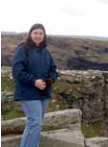
Katherine Arnold— now Kate Travis— interned for the Council’s publication when it was still CBE Views. She remembers attending sessions on journal editing at an annual meeting of the Council of Biology Editors (predecessor to the Council of Science Editors). At the time, she says, she did not appreciate the information as much as she did when she began working in the field. “Because I had come up through the ranks of journalism, issues like peer review and conflict of interest were all new to me,” she says. “All became incredibly useful once I entered the real world.”
Travis went on to intern at the National Cancer Institute. Afterward, she became news editor of the Journal of the National Cancer Institute and then associate editor of Science News. Now living in England, she is a freelance science writer and editor and the contributing editor for northern and eastern Europe at ScienceCareers.org. She is married to John Travis, European news editor for Science magazine.
Travis says she greatly enjoys her career, and she offers the following advice: “Keep your eyes open and absorb it all, read everything, and apply to everything you’re interested in even if you don’t think you’re qualified for it—because you truly never know, it may be your next job.”
Erin M Loos (2000)
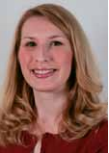
Erin M Loos—now Erin Loos Patton— was able to incorporate her interest in art into her work for Science Editor. Thus, for example, she wrote the article “Evaluating Scientific Illustrations: Basics for Editors”, which appeared in the July–August 2000 issue. Patton says it was rewarding to see her writing in the magazine and have her name in a byline even when she was an intern.
Soon after her Science Editor internship, Patton became a medical editor at Encyclopedia Britannica. She now works in Chicago at the public-relations firm Weber Shandwick; she started as a writer and has gone on to manage accounts in the healthcare field. She also does freelance editing for the Museum of Science and Industry and the Academy of General Dentistry.
Besides her internship with Science Editor, Patton interned in the public-relations department of a community hospital and was an editorial intern at Men’s Health magazine. “When I was an intern, it was common to have only one internship before entering into the job market,” Patton says. “With the job market being so tough now, you need to find something you’re truly happy with and do well at it. I recommend that one get as many internships as possible to find what one’s true passion is.”
Linda Wang (2000–2001)
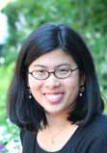
As an intern for Science Editor, Linda Wang wrote stories for Net Results (a column on Web sites useful to science editors) and CSE News. She also wrote feature stories, including one presenting highlights of the 2001 American Association for the Advancement of Science (AAAS) meeting in San Francisco.
Wang went on to work at the Journal of the National Cancer Institute. She is now an associate editor at Chemical & Engineering News. Her work includes writing articles about education and employment; she especially enjoys writing human-interest stories.
For those interested in a career in science writing or editing, Wang says she “urge[s] people to look at all different job opportunities with a science-writing background and always be open minded”, as she has been in her own career. “It’s so important to think outside the box so that you don’t narrow yourself into one area. The field of science writing is full of opportunities,” she says.
In her spare time, Wang volunteers for a soup kitchen and “dabbles in photography”. She was married in September 2009.
Gabe Waggoner (2001)
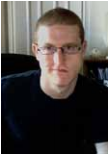
Gabe Waggoner immersed himself in the role of intern. To familiarize himself with Science Editor when he started, he reviewed back issues, studied how the publication was put together, proofread, checked facts, and observed Barbara Gastel’s duties as editor. He then went on to write a variety of articles.
Later, Waggoner was an editorial trainee at the American Society for Microbiology and became a copyeditor there. “My internship gave me a head start,” he says. “It was my first real chance to apply what I learned as a student of editing to practical, real-world, deadline-driven editorial situations.”
Since his internship, Waggoner also has been a manuscript editor at the Journal of the National Cancer Institute and a technical editor at StataCorp. From 2007 until earlier this year, he did freelance editing full time. His work included providing feedback on scientists’ manuscripts, editing articles for journals and research magazines, and editing books.
“Much of my work has been directly for journal and textbook publishers, but my favorite type of work is serving as an author’s editor,” he says. “By making it clear that you are the author’s ally and advocate, you can build a nice rapport, as well as a source of ongoing work.”
In March 2010, Waggoner became a copy and production editor at the National Council of Teachers of Mathematics. His work includes copyediting book manuscripts, coordinating with freelances, reviewing page proofs, and working with design and production staff. “I work with authors from manuscript submission to final product, keeping them up to date throughout the process,” he says.
Debra E Blakely (2002)
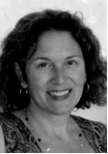
Debra E Blakely was already a lecturer at Texas A&M University, rather than still a student, during her time with Science Editor. Therefore, she was termed a fellow rather than an intern.
Blakely’s writing for Science Editor included the feature article “Terrorism and Timeliness: Scientific Periodicals Respond to September 11 and Its Aftermath”. That article stands out to Blakely as one of her favorites to write. “I was asked to speak on this topic recently for a Department of Homeland Security course on communicating during crisis,” Blakely notes. Blakely also wrote department pieces, such as Other Than Editing profiles.
Blakely encourages future interns and those considering a career in science writing or editing to always be thorough. “Be prepared to edit or write in the specific style dictated by a journal. They vary!” exclaims Blakely. “Be thorough, and always give yourself some time and distance between editing and turning in a final copy. It’s amazing how much clarity you have when you take a break from the writing or editing process.”
Blakely is now an assistant professor of communication at the University of Houston-Clear Lake. She teaches courses on a variety of topics, such as writing for the media, public relations, and digitalmedia issues.
Jennifer Ann Hutt (2002–2003)
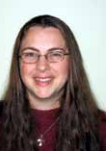
Jennifer Ann Hutt— now Jennifer Ann Hobson—worked with Science Editor in 2002 and 2003. She especially recalls preparing a feature article titled “Science Editors and Their Pet Peeves”.
“The article itself was a lot of fun to write. More than that, it gave me the opportunity to meet and interact with many established editors at such publications as the Dallas Morning News, Nature, Science News, and the children’s magazine Muse,” Hobson recalls. “For a graduate student, this was a pretty valuable networking opportunity, and it made for a lot of good laughs, too.”
After graduate school in science and technology journalism, Hobson spent almost 6 years as a project editor at Texas A&M University Press. In this role, she supervised the editing, proofreading, and production of 25 to 30 books per year.
Now, Hobson finds herself fully engaged in what she calls her “biggest project ever—cultivating a happy and healthy home for my husband and baby girl.” Hobson says she hopes to do freelance editing work in the future, and she keeps her skills sharp by assisting her husband, a pastor, with writing and editing.
Judith McIntosh White (2002–2003)
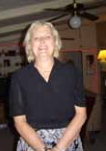
Judith McIntosh White was a Science Editor fellow while working in science communication at Texas A&M University. She says she especially enjoyed writing a feature story about telecommuting, in which she had experience. Another favorite piece was an Other Than Editing profile of Ivan Amato, whom she termed a “great example of work–life balance”.
White completed a PhD in agricultural leadership, education, and communications in 2006. Currently, she is an assistant professor in the Department of Communication and Journalism at the University of New Mexico. She teaches primarily undergraduate public-relations courses. Her main research interests lie in the communication of health and science. White urges anyone interested in science editing or writing to take advantage of any internship possible. She observes that internships can teach one not only about the field but about oneself.
Diego Pineda (2003)
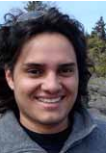
Diego Pineda, a Science Editor intern in 2003, especially recalls writing Other Than Editing profiles for the publication. “I interviewed some fascinating CSE members with very interesting hobbies, such as collecting fountain pens or hooking rugs,” he says.
Pineda says that developing a portfolio from his internship was very useful in preparing for his career. He went on to work as a science writer for the National Network for Immunization Information, based at the University of Texas Medical Branch. In that role, he was a coauthor of more than 100 articles and a book on vaccine safety. Pineda is now a freelance medical writer. He also consults for the World Health Organization.
“I advise anyone interested in science writing to work hard on his or her weaknesses. If you are a good writer–editor but have little background in science, learn as much as you can about the specific subjects you want to write about,” says Pineda. “An internship like the one offered by Science Editor can certainly help you.”
Jamie De Gregory (2004)
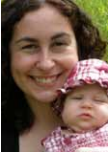
Jamie Holaday— Jamie De Gregory at the time of her internship—currently has her hands full as a new mother. However, she maintains her passion for science writing and editing. When she was interning at Science Editor, her favorite story was a feature on freelancing, a career that interested her then and still does today.
Holaday received her undergraduate degree in physics and then did graduate work in science journalism. After taking a course in science editing, she knew it was the field for her. She recalls reading about comma use for the course and recognizing that there were other people just as interested in punctuation as she was.
Soon after her internship with Science Editor, Holaday returned to the magazine as annual-meeting editor. She recently stepped down from the role. Also, after working as an internal-communication coordinator in industry, she is now beginning to pursue her freelance career.
Holaday recommends that anyone interested in a career in science editing or writing take advantage of all opportunities. “Take advantage of every opportunity you’re given because you never know how you’ll be able to incorporate it in your future career,” she says. “My time as an intern really increased my confidence. After interviewing people for the stories I wrote, I felt like I could be placed in any situation and still be confident in myself.”
Claudia Clark (2004)
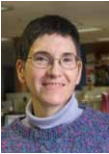
After meeting Science Editor Editor Barbara Gastel at an AAAS meeting, Claudia Clark, a former AAAS massmedia fellow, applied for and received an internship at Science Editor. Clark already had worked for 20 years in the hightechnology industry, and she had taught algebra to adult students and edited textbooks. “Interning at Science Editor not only gave me the opportunity to improve my writing skills but gave me an idea of what it is like to work at a journal,” Clark says.
Clark’s favorite story to work on was a profile of editor Bruce Dancik because of his interests in fly fishing and collecting antique books. She also enjoyed writing a feature story on a group of mathematicians who jointly wrote items under the single name Bourbaki.
Clark returned to the Boston area after her internship. She now works for the publishing house Aptara, which publishes mainly educational material in mathematics for grades kindergarten through 12. She also contributes regularly to Math in the Media, a monthly magazine of the American Mathematical Society. Clark says she “loves what [she’s] doing”.
Tanya Nading (2005)
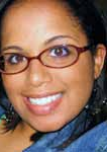
Tanya Nading’s internship helped to prepare her for her first job after graduating from the science and technology journalism program at Texas A&M University. “Of all the things that I was able to do while an intern, my favorite project was conducting interviews and writing a feature article highlighting CSE’s work in managing partnerships to enhance African journals,” Nading says. “That project helped me to enhance my writing skills and to learn strategies for working with outside sources.”
After graduation, Nading held positions requiring mainly writing and editing, including a job as communication specialist in the Department of Health and Kinesiology at Texas A&M. Because of her Science Editor experience, she felt comfortable in writing feature and news stories for newsletters and other media.
In 2008, Nading moved from Texas to New England to pursue a master’s degree in writing at the University of New Hampshire. After graduation from the fiction program there, she hopes to remain on the East Coast and find a position in publishing or communication.
Melissa J Wellington (2005)
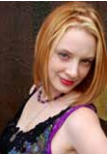
Pixie Henry (Melissa J Wellington at the time of her internship) started as an intern at Science Editor after finishing her master’s degree in English. Concurrently, she taught scientific writing at Texas A&M University. “The two positions worked well together, [and] the internship certainly helped prepare me for the following job I took, as managing editor for the South Central Review,” she says. At the South Central Review, Henry learned more about how a publication is created.
Henry lives in Austin, Texas, with her husband and three cats. She now freelances. She has published short fiction and short nonfiction, and she is working on her first novel and cowriting a nonfiction book.
Henry encourages writers not to give up on what can be a difficult career. “Writing especially can be a pretty tough field. My advice would be: Don’t let rejection get you down. Always strive to improve your work, keep learning, and be positive.”
Kathy M Clack (2006)
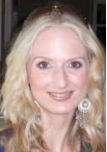
Kathy M Clack interned with Science Editor because of her interests in writing and medicine. Her articles for the magazine included an Other Than Editing profile and a story on the debut of Science Editor’s poetry column, Peer-Renewed.
Clack, who had received a BS in journalism in 2001, volunteered in medical settings around the time of her Science Editor internship and ultimately entered nursing school; she was nearing graduation when this article went to press. She hopes eventually to become a nurse practitioner.
Although Clack will not be entering the field of science editing, she said her internship prepared her for nursing school. “It polished and refreshed my writing skills,” she says. “I feel more confident in writing papers, conducting interviews, and doing research now.”
Amelia A Williamson (2006–2007)
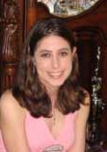
Amelia Smith (Amelia Williamson at the time of her internship) has many memories of her time as an intern at Science Editor. One of her favorite experiences was writing a Views Afield piece summarizing an article about a conflict between Einstein and a journal. The article recounted how Einstein angrily withdrew a paper when a journal returned it for revision but how, in the end, the referee’s criticisms proved valid. “It just goes to show that even a scientist as renowned as Einstein can benefit from the process of peer review,” Smith says.
Smith also recalls other opportunities she had while interning, especially covering sessions at the AAAS annual meeting. “It was an amazing experience, getting to go to all the news briefings and sessions and getting to watch all the science writers hard at work filing stories in the newsroom. I also met a lot of great contacts that have proved invaluable in my career,” Smith says.
Smith received her master’s degree in science and technology journalism from Texas A&M University in 2008. As part of her studies, she interned at the Fermi National Accelerator Laboratory, where she wrote for Symmetry (a particle-physics magazine) and the laboratory’s online newsletter. While finishing her degree, she worked for Texas A&M as a science writer. Smith is now a freelance science writer in Chicago.
Smith recommends surrounding oneself with professionals, such as scientists who can provide tips, and talking with veteran science writers or editors about their experience. “The more you surround yourself with the jargon, the more you will learn and understand it. I always find it helpful to write a vocabulary list when trying to learn more about a new field,” Smith says. “I write down all the words that I don’t understand at a talk and look them up afterwards so that the next time I hear them, I understand better.”
Shauna Kanel (2007)
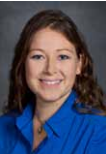
Although her stay at Science Editor was brief, Shauna Kanel, summer 2007 intern, found her time well spent and “no doubt educational and challenging”. Kanel also enjoyed attending the CSE annual meeting, which was the first meeting she covered as a journalist. Kanel’s contributions to Science Editor included articles on science-editing careers and on undergraduate science journals.
After her internship, Kanel took a job writing for the Division of Biomedical Informatics Research at the Stanford University School of Medicine. In October 2009, she accepted a position at the Lawrence Berkeley National Laboratory. Her work there includes editing, writing, Web design, and creation of social-media outlets.
Kanel said that her internship helped prepare her to begin her career. She advised, “Listen to your mentors. Even if you don’t understand why they tell you things, they will make sense later.”
Misha Kidambi (2007–2008)
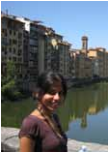
During her time at Science Editor, Misha Kidambi wrote a variety of articles, including feature stories, a personality profile, book reviews, and conference reports. Her favorite story was a profile of Julie Miller, who has been editor of Science News. “It was the first time I scheduled and carried out a telephone interview,” Kidambi says.
“I was initially nervous about doing a telephone interview and basing an entire article on that, but in the end I was happy with the way the article shaped up.”
Kidambi says that her internship gave her the confidence to embark on a graduate assistantship doing science writing at the Texas A&M News and Information Services. She also credits her internship with giving her the help that she needed to develop further as a writer. “Absorb all the feedback that is given. It has really helped me; I can’t emphasize it enough,” Kidambi says. “It is also a good opportunity to write about topics that interest you, and it’s a good place to learn to ‘pitch’ your stories.”
After graduating from the science and technology journalism program at Texas A&M in 2009, Kidambi did communication internships at the International Center for Theoretical Physics (in Italy) and at the Baylor College of Medicine. In November 2009, she began a communication internship in Vienna with the International Atomic Energy Agency.
Olga Kuchment (2008)
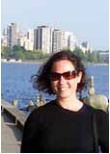
After talking with Science Editor’s editor at an AAAS annual meeting, Olga Kuchment knew that she wanted a Science Editor internship. And she received an internship for summer 2008. As an intern, Kuchment proposed story ideas, searched for cover art, and wrote several stories.
Kuchment fondly remembers her favorite story, which was on Rachel Carson’s career as a science editor. She especially liked doing the archival research for the story. “It was almost like I was time traveling”, she says, “to be reviewing the writings of other people over the last 50 years.”
After her Science Editor internship, Kuchment went on to a 6-month writing internship at the Howard Hughes Medical Institute. In September 2009, she entered the year-long science-writing certificate program at the University of California, Santa Cruz.
In her spare time, Kuchment enjoys reading, hiking, and spending time with her husband. She has continued to write for Science Editor; her article “A Delicious Take on Science Editing” appeared in the March–April 2010 issue.
Bernard Appiah (2008–2009)
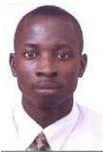
The most recent past intern at Science Editor, Bernard Appiah says he enjoyed his time as an intern. It was a busy time for him: Appiah, a pharmacist and editor from Ghana, not only was a master’s student in science and technology journalism at Texas A&M University but was pursuing, by distance learning, a graduate degree in development communication from the University of the Philippines Open University.
As an intern, Appiah wrote a variety of feature articles, news stories, and department pieces. One of his main stories profiled the 2009 recipients of international scholarships to attend the CSE annual meeting; it was a fitting assignment for Appiah, who himself had received one of the scholarships in 2007. Appiah jokes that another of his assignments was to write a book note but that by the time he finished, he had actually written an entire book review. Luckily, he was able to shorten it to the appropriate length.
Appiah recommends that interns maintain open communication with their supervisors and, of course, know about the style manual that the journal or magazine uses. He also says to take risks. “I accepted the challenge of writing the minutes of an Editorial Board meeting, when I was not expected to do so,” he says. “I learned a lot in the process.”
Appiah is scheduled to graduate from the Texas A&M master’s program in 2010. He has been succeeded by current Science Editor interns, Barbara Mendoza and Christina Sumners.
